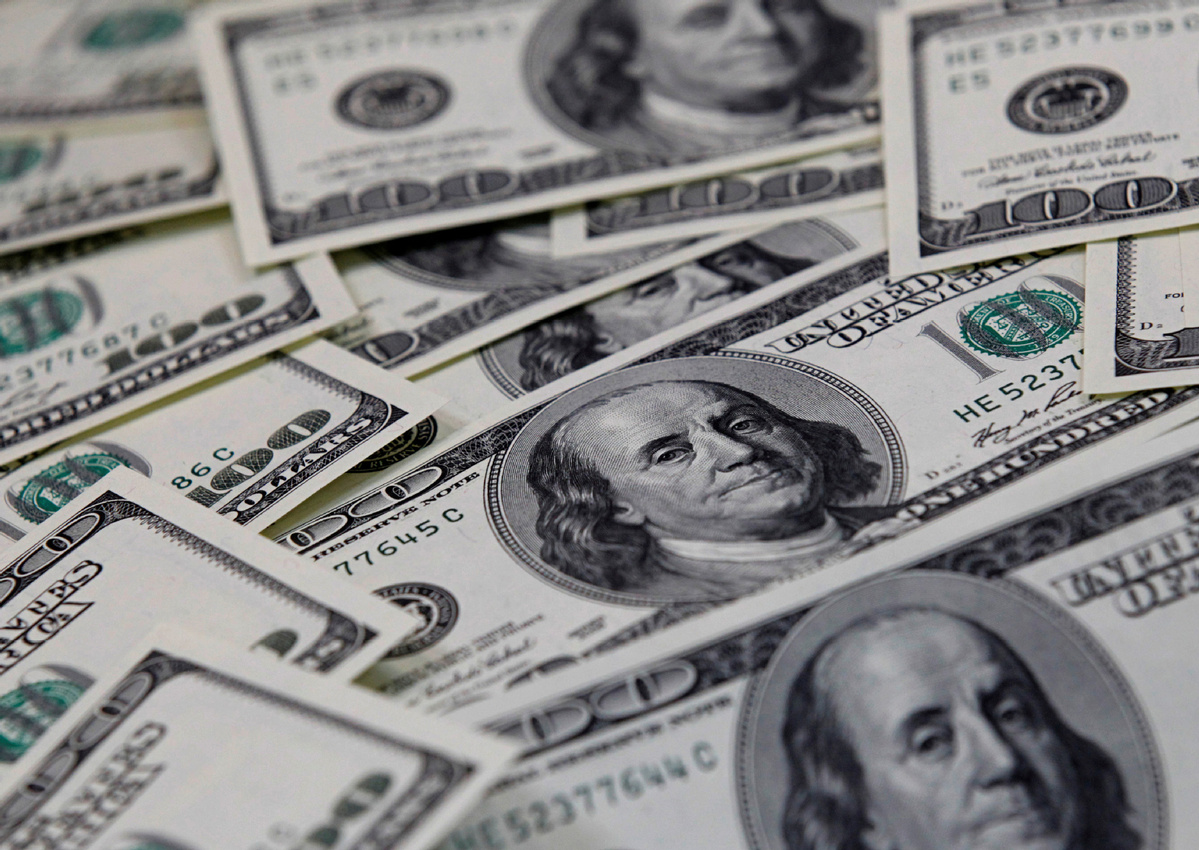Expert: Impact of rise in US yields limited
By ZHOU LANXU | China Daily | Updated: 2021-03-23 09:38

Economist notes inflows slowing but rules out capital flight from China stocks
Government bond yields in the United States are rising. While this may slow foreign capital inflows into China, it may not spark capital flight or take a heavy toll on Chinese equities, said a leading expert in international finance.
The yield on 10-year US treasury, a benchmark of return on US financial assets, has more than tripled from its trough seen in August to more than 1.6 percent as of Monday, according to market tracker Investing.com.
Market mavens have attributed the phenomenon to investors foreseeing a brisk economic recovery in the US and global reflations.
The rise in US treasury yields may have weakened the comparative appeal of Chinese financial assets and slowed capital inflows into the A-share market, said Zhang Liqing, director of the Beijing-based Center for International Finance Studies, which is part of the Central University of Finance and Economics, and a chief economist of PwC China.
"But I don't think the trend of net capital inflows into China will reverse to net outflows."
This is partly because the China-US yield spread, as represented by the difference between the 10-year Chinese treasury bond and its US counterpart, remains relatively high at about 1.6 percentage points, compared with about 2.5 percentage points at the beginning of August. This will continue to attract global investors, he said.
China's A-share market retreated recently amid higher US yields and slower foreign inflow. The benchmark CSI 300 index dropped 14.7 percent from its recent peak on Feb 18 to Monday's close at 5057.15 points.
On March 8, the index posted its biggest daily loss of 3.47 percent since late July, while net capital outflow via stock connects with Hong Kong came in at 8.59 billion yuan ($1.32 billion), the highest level in the past year, according to market tracker Wind Info.
"But the A-share correction is mainly attributable to domestic factors, especially that some shares in the consumer and pharmaceutical sectors have become overvalued," Zhang said.
Looking ahead, US yields may further rise, but it remains to be seen whether the A-share market will continue to feel the pressure of slower foreign inflows, he said.
The pressure will abate if yields on Chinese treasuries also rise and keep the China-US yield spread relatively stable, and if China posts a strong economic rebound.
"The Chinese economy is likely to achieve an annual growth of 8 percent or more this year, versus 2.3 percent in 2020, given a low comparison base and effective domestic containment of COVID-19," he said.
Investment should be the top growth engine for China this year, Zhang said.
"As the nation embarks on the 14th Five-Year Plan (2021-25), investments in areas such as 'new infrastructure', new urbanization, and carbon emissions reduction will speed up accordingly."
In addition, exports are expected to pose robust growth this year as well, Zhang said.
If the pandemic is brought under control worldwide, stoking a recovery in global demand, China's exports will boom, given the global supply chain's dependence on China's products, despite that some orders in labor-intensive industries may shift to Southeast Asian economies, he said.
If not, demand for protective and medical goods will continue to drive China's exports, Zhang said.
"China's economy has become more resilient against external shocks, as demonstrated by the country's steady economic performance in the COVID-19-ravaged 2020."
Amid the increasing exposure to risks brought by capital inflows and outflows, China's resilient economy has also helped create more favorable conditions to further open its financial borders, he said.
Yet, China's economic prospects still face several risks, including external ones surrounding the pandemic, a possible rate hike by the US Federal Reserve ahead of schedule, and China-US trade tensions, Zhang said.
Domestically, consumption growth may pick up but still faces downward pressure from fluctuating incomes and people's tendency to save more amid uncertainties, he said.
It is important for China to break the bottlenecks crimping domestic consumption and deepen reform and opening-up to boost technological innovation and productivity, ensuring healthy economic development in the long run, Zhang said.
























